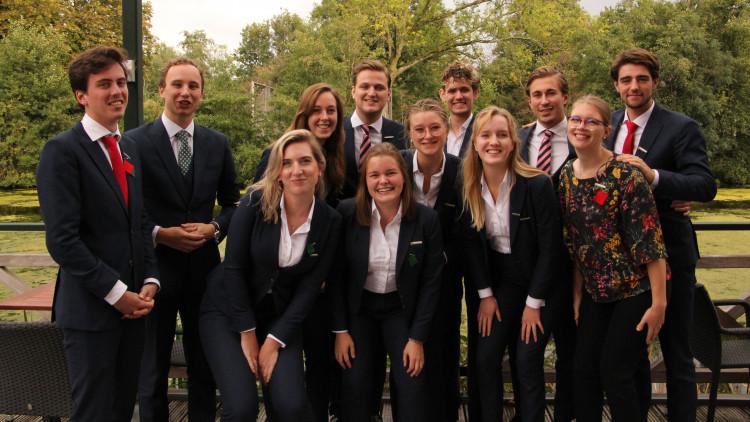Parties University Council: Concerns about online election battle remain

At the beginning of June, all students from Utrecht will be able to vote for the University Council and their faculty council, the Centraal Stembureau (CSB; Central Electoral Office) decided last week. The three largest student parties in the council, Lijst Vuur, the PvdUs, and the Vrije Studenten, had previously indicated that they would prefer not to hold elections if all the restrictions remain in place due to the corona crisis. Only the smallest party UUinActie was in favour of elections this academic year. We spoke to the chairman of the student section in the council Jesse Wijlhuizen (Lijst Vuur).
What do you think of the decision of the Central Electoral Office?
"In any case, all parties are glad to have clarity now. Everyone was waiting for that. It's nice that university councils and certainly faculty councils know where they stand. These are remarkably uncertain times anyway."
But now there will be an online campaign this spring. Three out of four parties weren't supporting that...
"Yes, it's hard to find enough candidates in the first place. Due to the corona crisis, many students are not thinking about elections. If you're afraid of a major study delay at this time, you're probably not so enthusiastic about standing for election anymore. Moreover, there are also potential candidates abroad.
"In addition, there is fear of a lower turnout. However, the Executive Board has now offered to assist in the communication surrounding the elections. Think of sending information to students in bulk emails and a special website about the elections. We are happy about that, but understandably UU staff are already very busy with other things".
So that doesn't take away the concerns?
"No, elections are not just about turnout, they're about well-informed voters. And that's where most parties see a problem. It's really going to be different. Normally, you would meet voters during a campaign and have a real conversation. That means you can be asked questions and can explain and clarify things. It goes both ways. That's no longer the case. It now comes down to parties sending their messages. And these cannot be checked as easily by the recipient."
Are you afraid of a dirty campaign or something similar?
"Not right away, but we have to be careful. What you see all over the internet, of course, is that a message sent online is difficult to correct. This is easier, for example, during a chat before the start of a lecture where everyone is physically present.
"Of course, students and student parties are usually sensible enough to deal with this. But I sometimes wonder if the students who don't vote are well and fully informed about university participation and the different points of view of the various parties. If that is not the case, it doesn't help if certain messages are misunderstood or taken out of context.
"For example, you saw it happening last week. Some parties had made a proposal to hold a referendum on whether or not elections should be held in view of all the objections in the current situation. At the time, there were calls in various places: beware, these parties want to abolish democracy".
"Miscommunication and misunderstanding are lurking. Moreover, there are differences in the financial possibilities of the parties. This can be reflected, for example, in the number of advertisements you can pay for. In a physical campaign, that distinction is of much less importance".
What are you going to do within the student section in the coming months to make everything run as smoothly as possible?
"We are going to make agreements with all parties so that we can overcome as many problems as possible. I am confident that everyone wants fair elections. We're in an unfamiliar situation and we'll have to make do with what we've got."